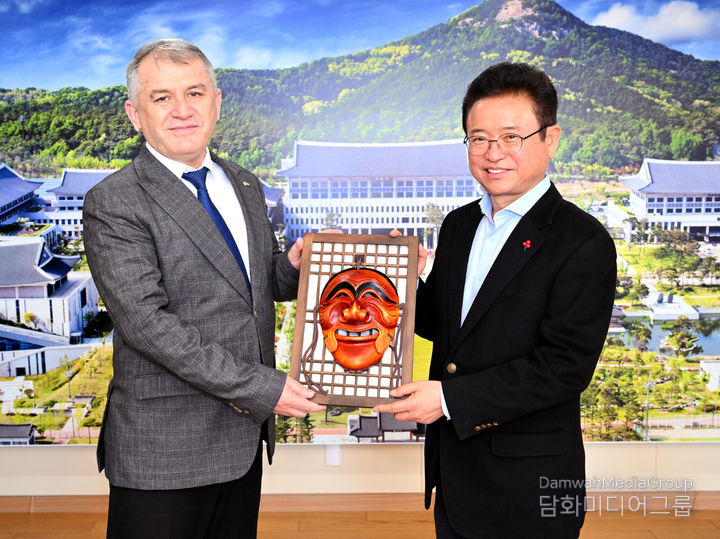By Diplomacy Journal Lee Kap-soo
Tajikistan's Ambassador to Korea Kirom Salohiddin and his delegation met with Gyeongbuk Governor Lee Chul-woo on Jan. 30 to discuss the expansion of friendly exchanges between Gyeongbuk Province and Tajikistan.
Lee Ok-ryun, president of the Korea-Central Asia Friendship Association, also attended the meeting.
Tajikistan is a country in Central Asia that gained independence from the Soviet Union in 1991 and is a member of the Commonwealth of Independent States (C.I.S.).

Although 93% of the country is mountainous, it has shown competitiveness in agriculture and textiles. The country is also rich in mineral and alternative energy resources and has high growth potential in the global market.
Korea is in the stage of exploring mineral resource development, leather processing, sewing, and daily necessities factories, mainly for small and medium-sized enterprises, but it is expected to expand cooperation in the construction and agriculture sectors.
This year, Tajikistan was newly designated as the 17th sending country for the employment permit system, which is expected to expand cooperation in the field of labor exchange.
During the meeting, Ambassador Kirom Salohiddin expressed his hope for friendly exchanges so that Gyeongbuk's excellent technology and the Saemaul movement can help Tajikistan modernize.
He also discussed the visit of Tajikistan's high-ranking officials to Gyeongbuk and suggested that Governor Lee Chul-woo visit Tajikistan.
"Gyeongbuk Province has been leading the economic development of South Korea, and it was a great opportunity to learn a lot about the way forward for Tajikistan," said Ambassador Kirom Salohiddin.
"Tajikistan has a long history of exchanges with Gyeongsangbuk-do through the Silk Road," said Governor Lee Chul-woo, emphasizing that "we will continue to cooperate in various fields to create development in both regions."

